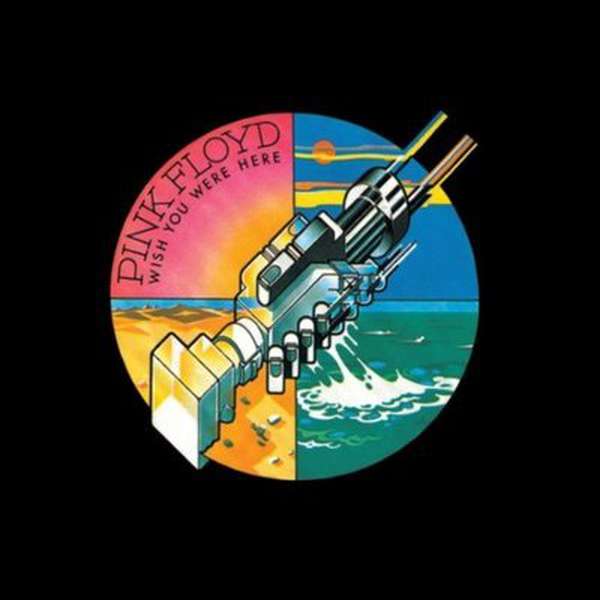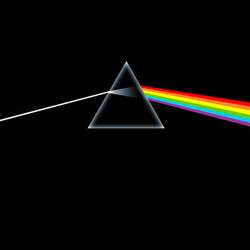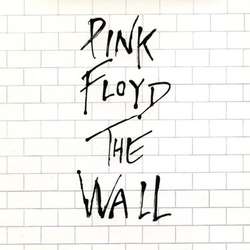I'm really quite thankful that the Why Pink Floyd...? remaster campaign has made it to Wish You Were Here so soon. It has aged incredibly well, and is every bit as perfect of an album today as it was when it was first released. It even holds up favourably in comparison to the first album to be reissued, which was The Dark Side of the Moon. The only difference is that we're all not collectively sick of hearing every single track on Wish You Were Here just yet. However, after how much of a let down the 'experience' version of The Dark Side of the Moon was, my hopes for Wish You Were Here's 'experience' release were less than spectacular.
So you can imagine my surprise when I hear disc two of the album and enjoy it immensely. Not only are the bonus tracks incredibly enjoyable in their own right, but they're the perfect selections to accompany the first disc. As a whole, the bonus material makes the experience of listening to the album much more nuanced and enjoyable than before, in stark contrast to The Dark Side of the Moon's staid, irrelevant pieces.
The selections start off with the first half of their 1974 Wembley performance (the second half of which is found on disc two of The Dark Side of the Moon's reissue). Perhaps it's just the nature of the pieces performed, but this half of the concert is much more engaging and enjoyable than the second, especially considering that the setlist consists of only three tracks. The first (and most poignant) track is a wonderful performance of the epic "Shine On You Crazy Diamond." What makes this such a particularly great piece is that, even though it is a rougher, earlier version of the track, it almost exactly parallels the version found on the final recording. The differences in this early performance are numerous, but all very subtle and nuanced, giving a great insight into the writing process of the piece. It's much longer than the other live versions you will hear on The Delicate Sound of Thunder or Pulse, and with good reason: the track is completely unabridged, preserving the movements usually excised from modern performances. You can hear how the original segue from part V to part VI would have played out without the wind effect used in the studio or the complete jump to part VII heard in later live performances. Part I of the piece is much more haunting without the wine glasses to back up Wright's keyboards, creating a much more ethereal effect than the final version of the song. Both Wright and Gilmour's solos are rife with hints to their studio recordings, but definitely betray the rough, early nature of the recording, and reflect their continual discovery and experimentation with the piece. Dick Parry's saxophone is also noticeably absent, making part V feel unnaturally empty. The biggest thing I noticed, however, was that the lyrics sung in this version are almost exactly the same as those from the final recording. This little island of familiarity is certain to please every listener, though it also betrays a subtle hint that the song was not originally intended for the memory of former bandmate Syd Barrett.
The latter two live tracks, "Raving and Drooling" and "You've Got to Be Crazy," would become "Sheep" and "Dogs" respectively on the band's follow-up to Wish You Were Here, 1977's Animals. Unlike the previous track, these two tracks sound vastly different from their final versions. "You've Got to Be Crazy" in particular sounds almost like an entirely different piece; while hints at the final song can be heard here and there, parts like the disarmingly quick first vocal passages and the altered chord progressions during the middle solos give a glimpse of how many rewrites this song must have went through. The lyrics definitely flirt with what would become the final theme, though it's also apparent that heavy changes were made to fit the new structure. Notably, the lyric "bridle and bit" was changed to "collar and chain" to reflect the new symbolism imbued by Animals' context. "Raving and Drooling" is much closer to its final form, but there are still numerous differences, not the least of which is the complete overhaul and expansion of the lyrics. Mason's drums also are much more sparsely performed, with a much heavier emphasis on the toms as opposed to the cymbals during most of the song. The multiple solos that run through the middle of the piece are almost unrecognizable from their final appearances, sounding more like the ethereal, psychedelic jams from Ummagumma than the heavily-structured grooves of The Dark Side of the Moon. The memorable outro to the song is virtually unchanged, however, and is every bit as cathartic as its final version, albeit somewhat shorter. In short: these performances give incredible perspective on this period of Pink Floyd's career, and give a glimpse of the record we might have had instead of Wish You Were Here if things had gone differently.
The studio selections begin with "Wine Glasses," one of the few released selections from the abandoned Household Objects album. That project was slated to be the original follow-up to The Dark Side of the Moon and, true to its name, it would have been played entirely on household objects. This particular piece is incredibly moving in its brevity and simplicity. The melody should sound very familiar; this track was edited and re-layered for use in part I of the final version of "Shine On You Crazy Diamond." The alternate take for "Have a Cigar" features cleaner, unprocessed vocals, altered keyboard patterns, and an extended jam outro, amongst other smaller changes. It's not quite as effective as the final version, especially given how sparse the ending solo is, but I still find it enjoyable, if only for the sake of comparison. It's interesting to hear how the song would've sounded if circumstances had allowed the band to perform the vocals themselves, as opposed to the mechanically filtered ones from Roy Harper on the final album. The alternate take of "Wish You Were Here" features violinist Stéphane Grappelli providing a "country fiddle" line on top of a slightly-altered song structure. While you can hear just the faintest trace of this recording on the final album during the fadeout to the track, this version restores all of the parts that he recorded with the band. The overall effect from this is that the piece feels less like a longing ballad in the making and more like a crooning country piece. And I actually mean that in a good way--it gives the piece a rustic quality that it only hints at in the final version, and hits just a bit closer to home. It is a remarkably enjoyable and valid re-framing of the piece.
Wish You Were Here is still a perfect album, and the bonus material on this reissue actually augments the listening experience incredibly. If you already enjoy this album, you owe it to yourself to hear this version--you'll gain a whole new respect for the final product. And if for some reason you haven't already heard this classic record, this is the best time to do so.



